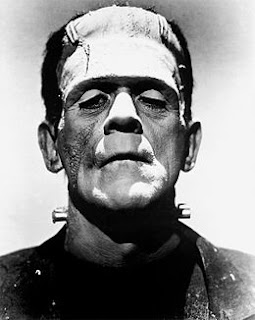I did the Haunted Half in Provo again!
And my sister did it with me this year!
It was a beautiful day for her first half, and she did well! It was fun watching her cross the finish line. I hope she had a good time.
As for me, I did pretty well. I got 11th in my age/gender division. This is dangerous, because now I'm wondering if I should continue the speed training in hopes of getting a little closer to the podium on my next race.
I shouldn't think this way.
In other news, I'm about to take a 10 day social media fast under counsel from my church leaders, which will start on the first day of November. I think this will be good for me, and help me re-prioritize my life (not to mention avoiding social media during the election), but that means that I won't be blogging for the next two Mondays. I promise to come up with some good posts for you when I come back. Maybe, with all my free time not on Pinterest and Facebook, I'll even write a short story for you!
Today, though, I want to finish out October and my discussion on monsters and monster stories by talking about what makes monsters so compelling. I don't mean in general; I mean specifically.
On Friday I watched the old 1931 Frankenstein with Boris Karloff. As I've said before on this blog, Frankenstein is interesting because it's a situation where someone, Mary Shelley, created a new monster that somehow resonated enough to become part of the witches/ghosts/vampires/werewolves canon.
This is rare and not easy. I'm trying to think of any other stories that have done so well at establishing a whole new class of monsters. Even zombies and robots don't seem to come close, or at least seem like a subclass of Frankenstein's monster.
So what did Shelley do? What can we learn from this, and how can we as writers try to create monsters that, even if they don't last as long as Frankenstein's monster, resonate and chill readers?
Well, I'm no expert in writing horror, but here are the thoughts that I had: good monsters, good horror, is both familiar, and other.
Let me explain what I mean. I'm going to start with Other. Monsters are Other. There's something about them that is horribly out of place in our nice, neat, orderly lives. Dracula is a blood-drinking living corpse. Ghosts don't move on like dead people are supposed to. Skeletons aren't supposed to be able to move on their own. Something is wrong.
With Frankenstein, the monster is a combination of dead people that has been reanimated. This is Other. It flies in the face of all reason. The dead can't come back to life as a new being. The Other in monsters also seems to be very connected to ideas of life and death (mostly death). Something has gone wrong with the way things are supposed to go, and we hate it.
But monsters are also familiar. Dracula is a man, in form, and he's charming and hospitable. He represents something we know and like, but twisted. He also represents ideas that we understand: hunger, lust, longing. There are real, familiar fears wrapped up in him: death, of course, but also fear of becoming something you don't want to be, or being a victim and then perpetuating the cycle of victimization.
Frankenstein's monster is also familiar in some ways, though I would claim Victor has more of the familiar in him, and that's what makes him so horrifying. The scientist who burns for knowledge enough to seek forbidden areas, who is horrified by his creation and rejects responsibility. Sometimes I think the real fear in Frankenstein is the fear of consequences, which is something we all face.
The best horror I've read is about us: it's about human desires, fears, and understanding, and the monsters come when those things are perverted and turned Other. They're everything we hate and never want to be, but at the same time, everything horrible we see in ourselves.
So, how can we use this? Well, if you're going to create a monster, what material are you going to work with? What human fears or desires will you play off of? What twists your heart to think about, for good or bad? Now, how can you make it dark? How can you take the good desires and make them harmful, or the bad ones and give them power?
And, finally, like Frankenstein and his creation, how can you build this fear a body and bring it to life?
Happy Halloween, and happy writing! I'll see you in a couple of weeks.

















